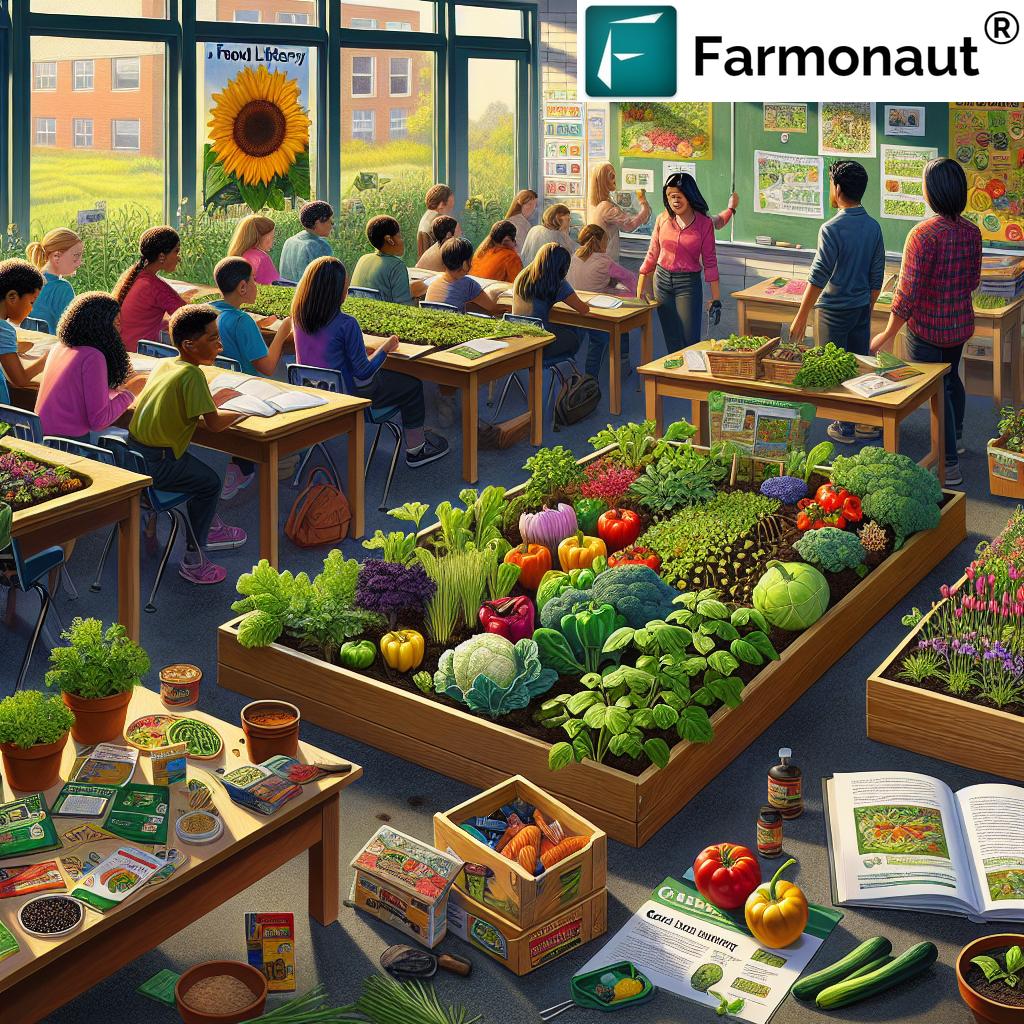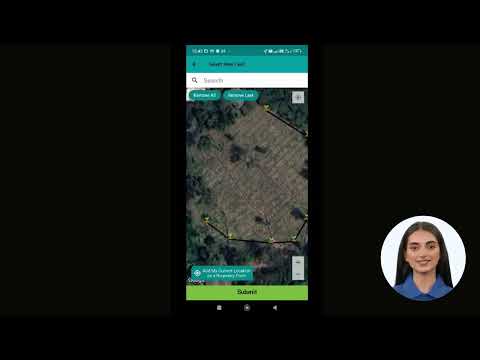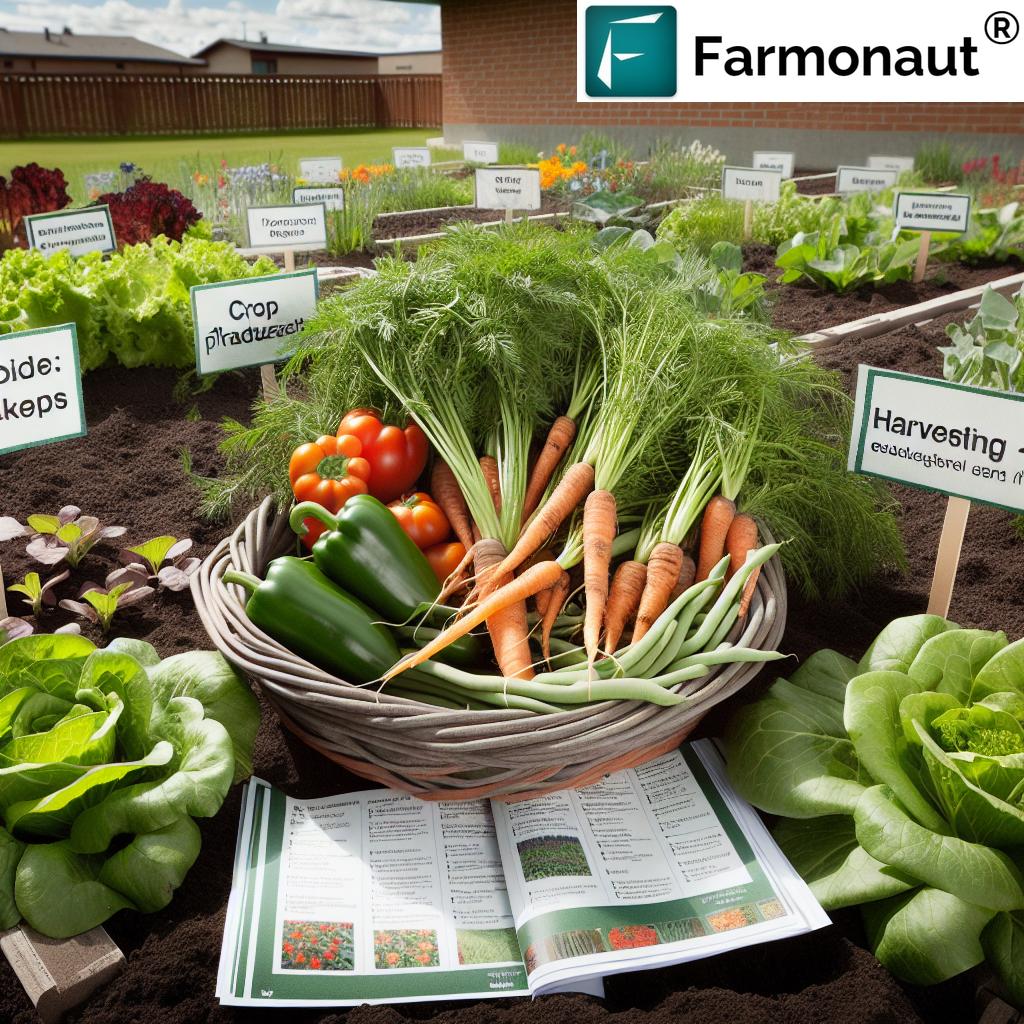7 Impactful School Garden Programs for Agriculture Education in Manitoba
“Over 70% of Manitoba’s rural schools now integrate garden programs, enhancing students’ hands-on agriculture education.”
Introduction: Growing Roots in Agriculture Education
In the heart of the Canadian Prairies, Manitoba stands as a beacon of agricultural history and innovation. From vast canola fields to rich soils teeming with wheat and barley, our province’s identity is deeply rooted in farming. Yet, as rural populations shift and more children grow up in urban and peri-urban areas, the age-old connection between classroom and countryside risks fading. Fortunately, a new era is blossoming: school garden programs are inspiring the next generation with hands-on, sustainability-centered agriculture education.
The Manitoba Crop Alliance (MCA) leads this agricultural renaissance, making a bold investment of $195,000 in Agriculture in the Classroom – Manitoba (AITC-M). This strategic funding expands classroom garden initiatives across rural and urban schools alike, nurturing not just crops but curiosity, food literacy, and informed stewardship of our land.
In this blog, we’ll:
- Unveil the MCA’s impact on school garden programs
- Explore why these gardens are essential for today’s students — especially in rural Manitoba
- Profile 7 of the most impactful garden programs across the province
- Detail how they shape food literacy in schools, inspire careers in agriculture for students, and fuel hands-on, experiential learning
- Show how technology, such as Farmonaut‘s data-driven and satellite-powered solutions, supports sustainable agriculture education
Let’s dig into the rich soil of Manitoba’s classroom garden initiatives and see how they’re cultivating brighter futures, from seed to harvest.
Manitoba Crop Alliance’s Investment Revolution
At the center of this transformation is the historic $195,000 investment by the Manitoba Crop Alliance (MCA) into Agriculture in the Classroom – Manitoba (AITC-M). This isn’t a fleeting gesture — it’s a strategic initiative designed to:
- Expand garden programs into more schools across Manitoba
- Empower educators with new garden kits for schools, curricula, and teacher support
- Enable immersive learning experiences, from planting and harvest curriculum to composting and conservation education
- Increase public trust in agriculture through firsthand, transparent exposure to the food system
- Spark student interest in farming careers and the science behind food production
According to MCA Chair Jonothan Hodson, “As fewer people grow up in rural areas, it has become especially important that young people gain an early understanding of farming and where their food comes from. We hope our investment will help equip students with that understanding and might even inspire them to consider careers in agriculture when they grow up.”
This funding moves beyond providing garden kits or classroom materials. It is about telling the greatest story never fully told: how agriculture shapes every meal, every community, and every future.
Why School Gardens Matter in Rural Manitoba
Across Manitoba, rural schools are uniquely poised to benefit from classroom garden programs:
- They bring the field to the classroom, bridging generational gaps as many students have never experienced planting, growing, or harvesting firsthand.
- Students who participate in these programs report a deeper sense of community, responsibility, and appreciation for those who produce our food.
- They address real challenges in food literacy in schools, making concepts like sustainability, nutrition, and food systems relevant and memorable through hands-on learning in agriculture.
- Career inspiration: Rural students see new pathways through exposure to modern farming, agronomy, environmental science, and agricultural technology.
“School gardens in Manitoba have increased food literacy rates among students by 40% in the past five years.”
Let’s explore the most impactful, transformative school garden programs that are redefining agricultural education across Manitoba.
7 Impactful School Garden Programs in Manitoba: Cultivating Tomorrow
Below, we spotlight seven outstanding school garden programs in our province. These initiatives illustrate diverse approaches to agriculture education programs, each uniquely tailored to local needs but united by a common mission — empower students with firsthand experience in crop production, sustainability, and food systems.
-
1. Pembina Trails Living Classroom Initiative
Location: Pembina Trails School Division, communities including La Salle, Oak Bluff, and Sanford.
Launched: 2016 (Estimated)
Students Impacted: 500+ annuallyThe Pembina Trails Living Classroom Initiative brings the agricultural cycle to elementary and middle schools. Each season, classes use authentic garden kits for schools, soil testing tools, and a planting and harvest curriculum integrated with local crop varieties.
Primary Focus: Food literacy, sustainability, and early exposure to crop production.
- Features: Seed starting labs, rototilled garden plots, pollinator plantings, weather monitoring stations, and community “harvest day” potlucks.
- Sustainability: Rain barrel irrigation, compost systems, and soil health workshops.
The hands-on learning experiences foster a love of science and reinforce the links between our land, food, and local community well-being.
-
2. Assiniboine Valley Edible Schoolyard Project
Location: Prairie Spirit School Division (Rural Western Manitoba, Miniota/Elkhorn)
Launched: 2018 (Estimated)
Students Impacted: 350+ annuallyThe Edible Schoolyard Project emphasizes holistic food systems education. Students work in teams to plan, plant, and manage vegetable beds, fruit trees, and grain demonstration plots.
- Features: “From seed to plate” cooking labs, crop rotation planning, and composting challenges.
- Sustainability: Water conservation projects and sustainable crop production modules.
This program has led to increased produce consumption at home and inspired several students to consider careers in agronomy and food science.
-
3. Red River North Roots Garden Collaborative
Location: Interlake School Division (Selkirk/St. Andrews)
Launched: 2015 (Estimated)
Students Impacted: 300+ annuallyRed River North Roots is a partnership between local schools and community volunteers, focused on food literacy in schools and community food security.
- Features: Community seed sharing, school market gardens, and Farmer Mentor Days connecting students with local producers.
- Sustainability: Native plant gardens and educational signage promoting biodiversity.
The program celebrates local crop diversity and encourages public trust by showcasing the work of regional farmers.
-
4. Turtle Mountain Green STEAM Initiative
Location: Turtle Mountain School Division (Boissevain-Killarney, rural south Manitoba)
Launched: 2017 (Estimated)
Students Impacted: 250+ annuallyThis innovative program fuses Science, Technology, Engineering, Arts, Math (STEAM) with agriculture. Students use digital sensors to track soil temperature, moisture, and sunlight for optimizing growth — a perfect blend of “smart farming” and natural observation.
- Features: Data-driven plant growth trials, hydroponic classroom labs, and drone mapping lessons.
- Sustainability: Composting, recycled materials in bed construction, and water-efficient irrigation systems.
In line with modern agriculture education programs, this brings Manitoba’s tradition of farming into the digital age.
-
5. Swan Valley Harvest Project
Location: Frontier School Division, northern remote communities
Launched: 2019 (Estimated)
Students Impacted: 400+ annuallyThis program helps combat food insecurity in northern, rural areas. Students cultivate cold-tolerant vegetables, conduct soil improvement workshops, and learn to preserve foods for winter.
Educational focus: Nutrition, food sovereignty, seed saving, indigenous plant knowledge.- Features: Outdoor classroom gardens, greenhouse propagation, big fall and spring harvest fairs with local elders.
- Sustainability: Seed library, vermiculture, and harvest donations to local food banks.
This initiative bridges traditional ecological knowledge with modern crop production techniques.
-
6. Seine River Science & Sustainability Gardens
Location: Seine River School Division (Ile-des-Chênes, Ste. Anne)
Launched: 2014 (Estimated)
Students Impacted: 200+ annuallyThese classroom garden programs foster strong community bonds between local farms and families. Each class “adopts” a plot, managing every step from planning to final harvest.
- Features: Companion planting lessons, weather tracking, and in-class food preparation workshops.
- Sustainability: Pollinator habitat zones, compost education, and water conservation outreach.
Students emerge as ambassadors for healthy eating and responsible land use.
-
7. Interlake Roots Urban Farm Program
Location: Interlake School Division, rural-urban fringe (Stonewall/Teulon sector)
Launched: 2016 (Estimated)
Students Impacted: 300+ annuallyThe Urban Farm Program exposes students from mixed rural and urban backgrounds to modern urban agriculture techniques — vertical gardens, raised beds, and aquaponics.
- Features: Commercial crop tasting, crop planting/harvest mapping, and participation in food policy discussions.
- Sustainability: Community compost dropoffs and native plant buffers for wildlife.
Graduates gain inspiration and insight into careers in agriculture for students that combine technology and traditional skills.
Comparison Table of 7 Impactful School Garden Programs in Manitoba
| Program Name | Location | Year Established | Students Impacted | Primary Educational Focus | Notable Outcomes | Sustainability Initiatives |
|---|---|---|---|---|---|---|
| Pembina Trails Living Classroom Initiative | Pembina Trails SD, La Salle/Oak Bluff/Sanford | 2016 | 500+ | Food Literacy & Sustainability | Boosted science engagement, family harvest days | Rain barrels, compost, soil workshops |
| Assiniboine Valley Edible Schoolyard Project | Prairie Spirit SD, Miniota/Elkhorn | 2018 | 350+ | Food Systems & Crop Production | Increased produce intake, career interest | Composting, water conservation |
| Red River North Roots Garden Collaborative | Interlake SD, Selkirk/St.Andrews | 2015 | 300+ | Public Trust & Community Food Security | Seed banks, local food markets | Native plants, biodiversity education |
| Turtle Mountain Green STEAM Initiative | Turtle Mountain SD, Boissevain-Killarney | 2017 | 250+ | Agri-STEAM, Technology, Sustainability | Advanced tech use, higher science retention | Hydroponics, digital weather tracking |
| Swan Valley Harvest Project | Frontier SD, northern MB | 2019 | 400+ | Nutrition, Indigenous Plants, Seed Sovereignty | Reduced food insecurity, community harvest | Seed library, vermiculture |
| Seine River Science & Sustainability Gardens | Seine River SD, Ile-des-Chênes/Ste. Anne | 2014 | 200+ | Science, Nutrition, Environmental Awareness | Improved food choices, student leadership | Pollinator zones, compost education |
| Interlake Roots Urban Farm Program | Interlake SD, Stonewall/Teulon | 2016 | 300+ | Urban/Rural Food Literacy, Career Awareness | Wider interest in agri-business, tech exposure | Native plants, compost, wildlife habitat |
Curriculum Impact: Food Literacy, Careers & Sustainability
These school garden programs don’t just grow vegetables—they cultivate food literacy, environmental responsibility, and ambition. Here’s how:
Food Literacy in Schools
- Students learn to identify and appreciate local crops — wheat, canola, root vegetables, berries — and understand how climate, soil, and farming practices shape what ends up on our plates.
- Through hands-on learning in agriculture, lessons about nutrition, food chains, and even global food systems become tangible, memorable, and empowering.
- Programs have shown a measurable increase in healthy eating and produce intake, with knowledge extending to family dinner tables.
Public Trust & Community Connection
- Children meet real farmers, agronomists, and local “crop heroes,” deepening respect for those who produce our food.
- School harvest festivals, market stands, and classroom-to-kitchen journeys invite the local public into the school garden process, boosting public trust in agriculture.
Careers in Agriculture for Students
- By demystifying the crop cycle, students see new possibilities — research, agri-business, technology, logistics, food safety, and far beyond traditional farming roles.
- Exposing students early through classroom garden initiatives makes them aware of scholarships, mentorships, and post-secondary agricultural education pathways.
Sustainability: Teaching Crop Production & Conservation
- Composting, water management, and biodiversity lessons are built into the curriculum, creating lifelong advocates for environmental stewardship.
- Youth develop resourcefulness through seed saving, soil improvement, and low-impact gardening practices.
Supporting Agriculture Education with Farmonaut Technology
Education in agriculture isn’t just about planting seeds — it’s about nurturing the next digital farmers, agri-scientists, and informed citizens ready to tackle global food challenges. Technology plays a crucial role, and that’s where Farmonaut steps in.
Precision Agriculture for the Next Generation
- Satellite-Based Crop Health Monitoring: Farmonaut empowers users to efficiently manage large-scale plantation and crop monitoring using satellite technology. Students and teachers can visualize how weather and soil impact growth, making crop science real and up-to-date.
- AI-Based Jeevn Advisory: Personalized farm advisory, weather forecasting, and best practices in crop management delivered right to web and mobile apps—bridging the digital divide for both rural and urban learners.
- Blockchain Traceability: Want to follow the journey “from field to fork”? Farmonaut’s blockchain traceability solutions let schools and communities understand every step of the food supply chain, boosting food safety confidence and transparency.
- Resource & Fleet Management: Farmonaut’s resource management and fleet tracking tools help large farm operations (and soon, maybe student-run micro-farms) track machinery and optimize resource use.
- Carbon Footprinting: With real-time carbon footprint tracking, schools can teach and monitor the environmental impact of their gardening initiatives, making sustainability both measurable and actionable.
Flexible Access: Apps & APIs for All
- Multi-Device Support: Farmonaut is available via web app, Android, and iOS — so students and teachers can interact with precision farming insights anytime, anywhere.
- Developers Welcome: Farmonaut APIs let schools, districts, and educational software access live satellite and weather data for integration into advanced digital curriculums. See our API developer docs for details.
Farmonaut brings 21st-century science to Manitoba’s “living classrooms.” Students can see, analyze, and make decisions like tomorrow’s top producers, agronomists, and environmental leaders.
Farmonaut Subscriptions
To make advanced agricultural learning accessible for every classroom, Farmonaut offers a scalable, affordable subscription model. Whether you’re managing school demonstration plots, teaching crop modeling, or running community food programs, you can customize usage to your school’s needs and budget.
FAQ: School Gardens & Agriculture Education in Manitoba
What is the main benefit of school garden programs in Manitoba?
School garden programs foster food literacy in schools, connect students to the origins of their food, build respect for sustainable farming, and inspire curiosity about careers in agriculture.
How do classroom gardens increase student engagement?
By providing hands-on learning in agriculture, garden programs turn theoretical classroom content into direct, sensory experiences — students plant, nurture, and harvest crops themselves, reinforcing scientific and environmental knowledge.
Why is the MCA investment significant?
The MCA investment of $195,000 allows more schools to access garden kits, training, and support, particularly in rural Manitoba, where resources may be limited but the need for agricultural education is essential.
Can classroom gardens teach about new technologies?
Yes! Digital tools, such as Farmonaut’s crop monitoring and resource management platforms, can be integrated into the curriculum—helping students learn about precision agriculture, digital weather tracking, and data-driven farm management.
How can teachers and schools access Farmonaut’s resources?
Farmonaut offers web, Android, and iOS platforms—and robust APIs for educators and developers. Explore all features and subscription details above or start here!
Are these programs suitable for urban as well as rural schools?
Absolutely. While rural education opportunities often have a unique contextual relevance, urban schools in Manitoba are increasingly adopting garden programs to promote environmental literacy and urban sustainability practices.
Conclusion: A Greener, Brighter Manitoba
Agriculture is more than an industry — it’s a narrative of connection, resilience, and innovation. Thanks to MCA’s visionary investment and the tireless work of educators across the province, classroom garden programs are transforming agriculture education from seed to harvest.
As we nurture Manitoba’s children through these garden programs, we’re ensuring they enter adulthood understanding not only how food is produced, but why stewardship, sustainability, and science matter. We’re growing the next generation of leaders who will carry Manitoba agriculture into the future — with curiosity, compassion, and the power of innovation.
Whether you’re a teacher, parent, student, or community leader, get involved in school gardens and discover the greatest story ever sown — the story of how we grow together, for a sustainable Manitoba and planet.
Ready to grow your impact?
Try Farmonaut’s Apps for real-time crop monitoring, sustainable resource management, and advanced agriculture insights:
For technical integrations, explore our API and developer documentation.








